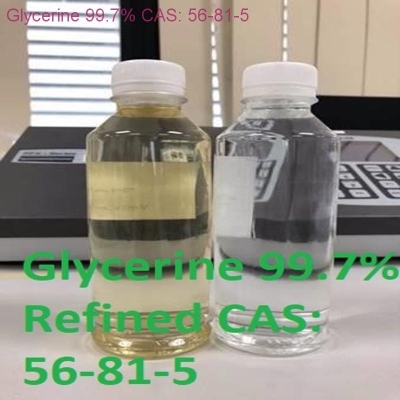-
Categories
-
Pharmaceutical Intermediates
-
Active Pharmaceutical Ingredients
-
Food Additives
- Industrial Coatings
- Agrochemicals
- Dyes and Pigments
- Surfactant
- Flavors and Fragrances
- Chemical Reagents
- Catalyst and Auxiliary
- Natural Products
- Inorganic Chemistry
-
Organic Chemistry
-
Biochemical Engineering
- Analytical Chemistry
- Cosmetic Ingredient
-
Pharmaceutical Intermediates
Promotion
ECHEMI Mall
Wholesale
Weekly Price
Exhibition
News
-
Trade Service
Introduction This article reports a case of refractory esophageal stenosis caused by a rare cause
.
Case data: A 60-year-old female patient with a history of ATTR amyloidosis and heart and liver transplantation complained of progressive difficulty in swallowing solid and liquid esophagus
.
The patient was treated with tacrolimus, mycophenolate mofetil (MMF) and prednisone
.
Other related drugs include the use of trimethoprim and sulfamethoxazole and valganciclovir to prevent infection
.
There was no abnormality in physical examination and laboratory examination
.
Esophageal gastroduodenoscopy (EGD) and histopathological examination of the middle 1/3 of the esophagus, the results are as follows (Figures A and B)
.
Figure A and Figure B.
Although high-dose proton pump inhibitor (PPI) treatment and repeated dilation were performed, the patient's symptoms did not improve
.
What is the most likely diagnosis? Analyze the diagnosis result: MMF-induced esophagitis
.
EGD showed a long benign intrinsic moderate stenosis in the middle third of the esophagus with extensive fibrotic stenosis (inner diameter 8 mm x length 4 cm) (Figure A)
.
The stenosis was expanded to 11 mm through an endoscopic dilator
.
Esophageal biopsy revealed extensive ulceration with fibrinous purulent exudate and inflammatory granulation tissue (Figure B)
.
There were no fungal or viral infections or malignant tumors
.
The patient received a percutaneous gastrostomy tube (PEG) placement
.
In the following year, despite receiving continuous high-dose PPI treatment, the patient continued to have difficulty swallowing and needed to be dilated once a month
.
After excluding the infectious cause, MMF is suspected of being a potential cause of dysphagia
.
After stopping MMF, the patient's symptoms immediately improved significantly
.
The patient was followed up 4 months later.
EGD showed that the esophageal cavity was extensively unobstructed, with only mild mucosal variation, manifested by flattening and scarring in the middle of the esophagus
.
Knowledge expansion: MMF-induced esophagitis MMF often leads to nausea, vomiting, diarrhea and other gastrointestinal adverse reactions
.
Although the entire gastrointestinal tract is susceptible to MMF-related toxicity, the colon and small intestine are the most affected areas
.
A variety of mucosal changes can be seen in the lower gastrointestinal tract, ranging from inflammatory bowel disease (IBD)-like changes to features similar to graft-versus-host disease (GVHD)
.
The upper gastrointestinal toxicity of MMF includes local irritation and injury compatible with the use of non-steroidal anti-inflammatory drugs, ulcerative esophagitis, reactive gastric disease, and duodenal ulcer
.
MMF-related esophageal stenosis is rare
.
This article reports a case of refractory esophageal stenosis caused by a rare cause.
When more common causes are ruled out or when esophagitis is ineffective through PPI treatment, MMF-induced esophagitis should be regarded as a potential cause of dysphagia, especially for Transplant patients
.
References: Ahmed Z, Schwartz MR, Quigley EM.
Esophageal stricture: Not your usual culprit[J]? Gastroenterology.
2021 Oct 21:S0016-5085(21)03660-X.
doi: 10.
1053/j.
gastro.
2021.
10.
022 .







